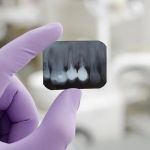Understanding Dental Numbing: How Long Does It Really Last?
If you've ever had dental work done, you’ve likely experienced the numbing sensation that comes from the local anesthesia your dentist uses to keep you comfortable during the procedure. I remember my first dental filling, and I was amazed by how numb my mouth felt. It was so numb, in fact, that I could barely feel my lips or tongue! But the real question that many people have, including myself at the time, is how long does this numbing actually last? When will I be able to feel my mouth again, and what can I do if I’m feeling uncomfortable afterward?
1. The Typical Duration of Numbing After Dental Procedures
On average, the numbing effect from dental anesthesia lasts between one to three hours. Of course, this can vary depending on the type of procedure you had and the anesthesia used. For simpler procedures like a routine cleaning or a filling, the numbness may start to wear off in about an hour or two. On the other hand, if you had a more involved treatment, like a root canal, the numbing sensation may stick around for a bit longer, but still typically no more than a few hours.
2. What Affects How Long the Numbing Lasts?
The duration of the numbing effect depends on several factors. In my experience, and from what I’ve learned as a dental patient, the type of anesthesia used is a key element. The most common local anesthetic used by dentists in the U.S. is lidocaine, and its effects tend to last about one to two hours. However, some dental procedures may require stronger doses or different types of anesthesia, which can affect the length of time you feel numb.
Additionally, your individual response to anesthesia plays a role in how long the numbness lasts. Some people metabolize anesthesia faster than others, meaning they may start to feel the effects wear off sooner. Others may take longer to fully feel their mouth again, especially if they’re more sensitive to the anesthesia or if the dentist used a higher dose. Other factors that can affect numbing duration include your age, body weight, and overall health.
3. When Does the Numbing Begin to Wear Off?
When I had dental work done, I recall the numbing gradually decreasing, starting in the lower part of my mouth and slowly moving up to my lips and tongue. The sensation doesn’t just vanish all at once; instead, it wears off in stages. For me, this was a welcome sign that the procedure was nearing its end. Generally, once the numbness starts wearing off, you’ll begin to feel tingling sensations as your nerves reactivate. It’s completely normal to feel a little “pins and needles” sensation as your mouth returns to normal.
4. Can I Speed Up the Process or Make the Numbing Wear Off Sooner?
If you're like me, you probably don’t want to wait around for the numbing to wear off—especially if it’s causing you discomfort or making it hard to talk and eat. While there’s no quick fix to make the numbing wear off instantly, there are a few things you can try to speed up the process:
- Move your mouth: Gently wiggling your lips, tongue, or even chewing softly (once your dentist says it’s okay) can help stimulate blood flow and speed up the process of your body breaking down the anesthetic.
- Warm compress: Applying a warm compress to the area where you were numbed can help relax the muscles and increase blood circulation, potentially making the numbing wear off faster.
- Stay hydrated: Drinking water can help flush out the anesthesia from your system, though it’s important not to force yourself to drink too much right away, as the numbing can make it harder to swallow.
5. What to Do if the Numbing Lasts Too Long
Occasionally, some people experience numbness that lingers longer than usual. While it’s rare, if the numbing lasts for more than six hours, or if you start to experience pain or other unusual symptoms, it’s important to contact your dentist. In my case, when I had a bit of lingering numbness after a dental cleaning, my dentist reassured me that it was normal, but they still advised me to check back if I felt anything out of the ordinary. A prolonged numbing sensation can occasionally be a sign of a nerve irritation or other issue that may require attention.
6. Does Numbing Affect Eating or Drinking?
After a dental procedure, the numbness in your mouth can make it difficult to eat, drink, or speak properly. I vividly remember trying to sip a drink after getting a filling, and it ended up dribbling down my chin because I couldn’t feel my lips! It’s best to avoid eating or drinking hot foods or beverages until the numbness wears off to prevent burning your mouth or accidentally biting your cheek or tongue.
7. The Importance of Following Post-Dental Care Instructions
When your dentist administers local anesthesia, they usually provide you with post-care instructions to follow while you're numb. One important thing to keep in mind is to avoid biting or chewing on the side that was numbed until the sensation returns. I made the mistake of trying to eat while still numb once, and I ended up biting the inside of my cheek without realizing it. Following your dentist’s advice can help you avoid painful or unnecessary injuries to your mouth.
8. When Can I Expect Full Sensation to Return?
After the numbing wears off, full sensation usually returns within a few hours. For most people, this means that within 3 to 4 hours, you should be able to speak, eat, and drink normally again. However, it’s important to remember that everyone’s body reacts differently to anesthesia. If you notice anything unusual after the numbness wears off, like persistent pain or discomfort, don't hesitate to contact your dentist for further guidance.







 Vaksman Dental Group4.0 (309 review)
Vaksman Dental Group4.0 (309 review) Dental Arts of Totowa4.0 (80 review)
Dental Arts of Totowa4.0 (80 review) Vadnais Heights Family Dentistry4.0 (28 review)
Vadnais Heights Family Dentistry4.0 (28 review) Southwest Periodontal & Implant Specialists4.0 (183 review)
Southwest Periodontal & Implant Specialists4.0 (183 review) Brian Kerr DMD, PS4.0 (827 review)
Brian Kerr DMD, PS4.0 (827 review) Oshiro Dental4.0 (5 review)
Oshiro Dental4.0 (5 review) The Importance of Oral Health Education During Pregnancy for a Healthy Pregnancy
The Importance of Oral Health Education During Pregnancy for a Healthy Pregnancy Best Tips for Brushing Your Teeth Properly for Healthy Gums: Essential Techniques for Oral Health
Best Tips for Brushing Your Teeth Properly for Healthy Gums: Essential Techniques for Oral Health Why Skipping Dental Checkups Can Lead to Bigger Oral Health Problems
Why Skipping Dental Checkups Can Lead to Bigger Oral Health Problems Advantages of Porcelain Dental Restorations
Advantages of Porcelain Dental Restorations How Can Diabetes Cause Tooth and Gum Problems? Preventing and Managing Oral Health Issues
How Can Diabetes Cause Tooth and Gum Problems? Preventing and Managing Oral Health Issues Healthy Habits for Promoting Good Oral Health and Hygiene: Tips for a Healthy Smile
Healthy Habits for Promoting Good Oral Health and Hygiene: Tips for a Healthy Smile